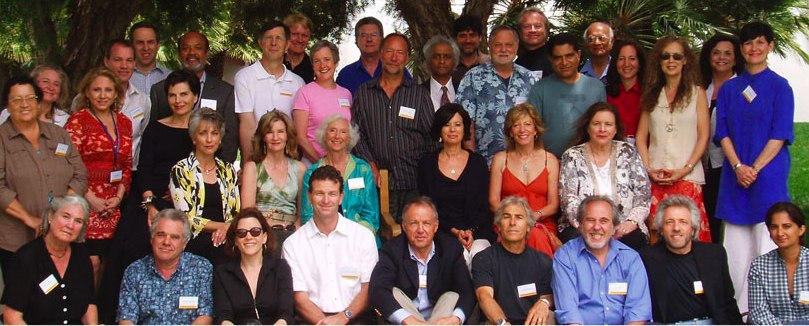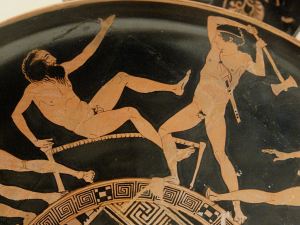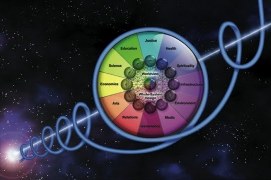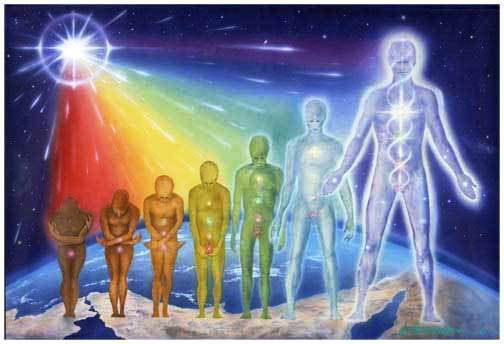 |
 |
Lecture
1: Visionaries: Introduction & Overview
 |
Adam Blatner
(This is the 1st of a 6-lecture series for Senior University Georgetown, September 26, 2011)This is the first lecture.
The second lecture on 10/3 considered basic shifts in philosophical perspective.
The third lecture on 10/10 looked at visionaries in psychology.
The fourth lecture on 10/17 presented pioneers in education, which is one extension of psychology.
The fifth lecture on 10/24 extended our consideration of cosmic evolution to new visions of our human potental.
The sixth lecture on 10/31 presented visionaries in the arena of interspirituality.
Then I summarize on a final webpage. (This general theme also was addressed in a course given in 2008)
Introduction
My goal is not so much to "teach" you things as to kindle your enthusiasm. You can be a visionary, too, if you talk about these ideas with your family and friends. A visionary as I am using the term is an optimist with reasons to be optimistic. I allude to the lyrics by Johnny Mercer in the early 1940s: "You gotta accentuate the positive, eliminate the negative, latch on to the affirmative, and don't mess with Mister In-Between."I don't doubt that there is a great deal of gloom and doom. "I hear the human race is falling on its face, and hasn't very far to go," nurse Nellie sings in her song "Cockeyed Optimist," as part of the Broadwas musical, South Pacific in 1949. Or as one of my favorite philosophers, Alfred North Whitehead, said: "It is the business of the future to be dangerous." So I'm not advocating denial of the challenges we face, but I find it helps to identify a number of good reasons for optimism, and will be describing some of the people and their ideas who support this feeling.
A visionary isn't necessarily right. You needn't believe him or her just because we assign that label. But I do think it's worth considering what they have to say. Their approaches work---for the most part---in my mind, and so I am honored to be witnessing to them. We're talking about a mixture of faith-ing---a verb form, turning to the light, conscious, willed optimism, with an associated complex of reasons to be optimistic.
 |
Here on the left are a bunch of them a a conference put on by Barbara Marx Hubbard (center, with white hair). These include people who think and write articles and books about this challenge. It's happening! This lecture is to let you know about this trend!
While there are many visionaries in the realms of technology, business, social action, and many frontiers, I just don't know enough to evaluate their work. My own areas of study include trends in psychology, philosophy, education, spirituality, and the like. The focus will be on what I think is needed if we are to make progress in implementing in a coordinated way the discoveries and advances in other fields: What's needed is an "evolution of consciousness." (Google that phrase, or consciousness evolution, and browse around.) This includes opening your mind to other perspectives and becoming more empathic. I'll be emphasizing more of what’s happening involving philosophy, psychology, education, science, a new story of our culture, and how people in mainstream religions are reaching across traditional
My friend Mark Hicks reminded me of the metaphor of the surfer who is impelled by the force of the wave behind him. If he gets too far forward, he loses the forward energy; too far back, and the wave gets ahead of him. Our visionaries are expressing conditions that are ripening in our own century, and their work leads the way, but also expreses what many of us yearn for.
We are in a time of accelerating change in many ways: Population, numbers of cell phones and other electronic-computer devices in use, number of messages being sent, amount of data stored, etc.. This upward-rising slope is significant and this moment is in the middle. When we were kids, stuff was changing at about 30 degree angle, and now it's at more of a 60-degree slope. Saying it another way, about information, for example, the trickle became a spring, a stream, a creek, a river, a delta, an ocean, a tsunami (tidal wave). We grew up thinking we could be well educated, but by the 1970s this became more clearly an unreachable dream, and now it's really impossible just to keep up.
We need to develop a vision, a philosophy, a psychology, an approach to education and religion, that takes into consideration this acceleration of so many variables. In addition, the slope also speaks to the number of variables involved in a given activity---its complexity. That too is accelerating.
 |
| Norbert
Wiener, pioneer of cybernetics |
Cybernetics
This is the name for a sub-field of systems theory that recognizes that for highly complex systems, so many variables are active and changing that it is quite impossible to be precise from the get-go. Instead, what we need to do is try something and get feedback. Based on the feedback, we make corrections and try again. We may make twenty or two hundred or two thousand tries, and if we've arranged our feedback systems correctly, we get feedback that helps us to adjust our response and get closer and closer even to a moving target.We didn't aim our rocket ship to the moon exactly right: It was off course by a few hundreths of a degree for most of its course. We arranged for its onboard computer to check its path against the location of a fixed star and to make tiny jet adjustments, this way, back that way, so that by the time it reached the target the ship was only off course by a few feet. Cybernetics has multiple applications in computer work and now in almost every organization that deals with complexity.
Cybernetics is a good principle in ordinary communications, too---a shift from arguing about who's right to using feedback to make adjustments and work out a compromise. It means that you can’t just do things and they turn out the way you planned. There are too many variables. In complex systems you need to use what Norbert Wiener in the mid-1950s called “cybernetics.” You build into the system the capacity to adjust itself. You know it’s too complex to just aim at the right result, so you aim in the general direction and then use feedback to get you closer and closer. When there are enough tries, you do fairly well.
Individuality
Another implication of complexity is individuality, uniqueness. Note that this is significant in our education and other institutions, because although we give it lip service, we still tend to treat students in school and parishoners in a congregation as if they were all pretty much alike. That was the product of the industrial revolution and the probably illusory or only partly correct notion of "efficiency." It certainly doesn't apply in light of current knowledge, but it will take a half-century to get that idea to replace the other---the idea that if you only use the right technique, everyone will do well. The idea of individualization makes it more difficult for administrators who find their job easier by thinking in general terms---but that's one of the paradigm shifts to be recognized. |
The tendency to treat all workers or student the same may hide behind the rationalization of fairness or democracy, but it's hokum. It's a "Procrustean Bed" that stifles creativity. [This is an allusion to the ancient Greek legend of adventures of the superhero, Theseus. It seems that near Athens there was a sort of ogre who kept an inn. When some unlucky traveler stayed there Procrustes would offer him the use of this special "bed." Whew, sure. Alas! when on the bed, it held him fast. He had better fit the bed perfectly, because if he were a little short, the bed became a rack that would stretch him; and if he were too long, Procrustes would cut off the bottoms of his feet (ouch!) so he fit just right. Luckily, Theseus came to visit, picked up on the scam, faked the ogre out and killed him. Yay.].
The point here is that we have increasing knowledge that people are really different in temperament, tastes, abilities, backgrounds, and other elements, and that increasingly in the last forty years these elements have been described and further differentiated. Before that, many theories of psychology and other ideas about human nature failed to adequately account for all these differences. This is only now becoming more widely appreciated.
Non-Rational Mind
When we were growing up, we sort of thought people were rational. Modern economic theory and other theories increasingly take into account the nonrational tendencies---as in an emerging field, psycho-economics. Freud was right in recognizing the importance of non-rational mind, and in charting a few of its patterns, but he was wrong in coming to conclusions about this vast realm of life. A few of his theories have been productive, many of them have been recognized as misleading. But in the last twenty years, many psychologists not at all beholden to Freud have been doing many experiments on the mind's non-rational tendencies and writing a fair number of books and many articles about these illusions. (Of course, the south-Asian Indians knew about the prevalence of this tendency, attributing it to the goddess of illusion, "Maya" (nothing to do with the central American tribe).Some of non-rational mind is childish, irrational. There still needs to be a lot of work done in promoting critical thinking. But some non-rationality is mythic, poetic, has to do with beauty, romance, tenderness---stuff that in no way can be accounted for or dealt with rationally---and that's fine. It's not supposed to be. Finally, there's a kind of non-rationality that is more subtle, extra-mature, associated with wisdom or mysticism. It deals with, say, how you can entertain both humility and confidence at the same time. As kids we think "either-or," but as life goes on we learn that many things can be really understood best as "both-and."
 |
On Feeling Overwhelmed
Yes, more than ever it can seem too big, multi-national, complex, far away, and the temptation is to give in and withdraw. Big mistake. It's not going to get done if we don't do our part, however small. One of our heroes is a visionary, Buckminster Fuller, who was sometimes right, and sometimes his ideas haven't panned out. But he dared. "Bucky:" had has as his epitaph, "Call me trimtab." What an intriguing term! This visionary |
 |
(Trim tabs are used on the rudders of airplanes, too.)
Barbara Marx Hubbard
For example, she uses this diagram on the left to suggest the many frontiers of consciousness evolution. But what is especially interesting. is to look at the kinds of items she includes, and so I have enlarged this below:
Take a look at these items with a magnifying glass if need be!
There is a spiritual element in this, too. Some call it God, but her term is less ethnocentric.
:
 |
In this picture to the left you can see that Hubbard views our growing ability to coordinate our efforts as part of the great spiral of evolution from the Great Radiance (also known as the Big Bang) into the present and the future!
Many of these visionaries relate to this and other fields---in this case, a grand view of consciousness evolution as an extension of physical evolution, that we'll be talking about in the fifth lecture in this series.
Hubbard's calling the center "One Source" also touches on the sixth lecture: Can we find words for God that don't collide with the names used by other cultures?
These categories on the right also relate to the third lecture: If we were to support such programs as in the tables on the right, what changes would we need to make in education? Would we teach techniques of empathy-building and peacemakeing ---or as Hubbard suggested, having a cabinet-level "Secretary of Peace"?
Considering, for example, the category of governance and law: I worry that the ones who want to throw out the bums and put in good guys aren’t really just advocating for another bunch of bums? History has so often done this kind of exchange...
Or can we really begin to think differently about governance? Can politics move from science to art to true statesmenship?
 |
Can Consciousness Evolve?
I think it has been and it will continue. In the picture to the right, you see a caduceus like spiral with lighted-up places along the spinal column. That draws on the symbolism of kundalini yoga. (More about this on another website about "deep maturity.".) has symbolism taken from the Yogic theory of centers of energy, but what’s really relevant is that the mid and higher centers are lighting up...The tummy is what most of us get to and idealize, the I win, I’m competent
The heart we do a bit and maybe could do more—I include a wider circle of people in my circle of caring
The throat chakra, or opening has to do with recent research on flow and spontaneity I’ll talk about in the 3rd lecture, what does it take to operate most creatively
The higher chakras have to do with surrender and opening to spirit and will be addressed in the last lecture... Are we evolving, can consciousness lead to increasing numbers of people who aspire to and work on opening our higher centers on what I call the Axis of Inspiration?
36 fractals, another term for complexity in art, we see it more in graphics art but shouldn’t take it for granted. For the first time in history we’ve gotten a handle on it in mathematics... But it has implications not just for making forests look more realistic, as in Avatar movie, but for how we think about ourselves as complex, too...
37 It’s not easy to imagine, but not impossible, just a stretch...
- - - -
Final thoughts for the day:
Mahatma (great soul) Gandhi said:
The roots of violence are when there is
wealth without work
pleasure without conscience
knowledge without character
commerce without morality
science without humanity
worship without sacrifice
politics without principles....
Hm. Sound familiar?
Isaac Asimov, the polymath and science fiction writer, wrote:
The saddest aspect of society right now is that science gathers knowledge faster than society gathers wisdom.
George Bernard Shaw said: "Democracy is a device that ensures that we shall be governed no better than we deserve.
- - - - -
e y.